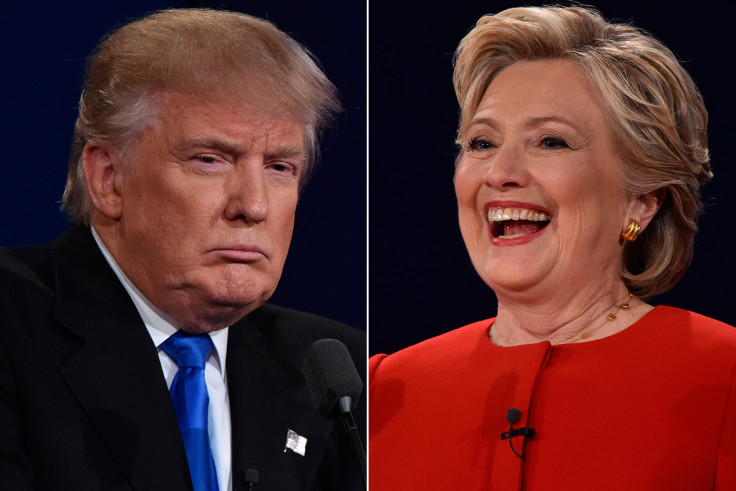Clinton vs Trump debate cause for alarm for non-Americans over Trump's foreign policies
Trump slammed in Japanese newspaper editorial which said he was "just plain wrong."
The US presidential debate between Hillary Clinton and Donald Trump has raised more than a few eyebrows in Japan. In fact, it has caused some concern over the policies raised by the billionaire.
In its editorial, Japan Times noted that some of the statements made by Trump were troubling and even offensive to Japan, referring to policies pushed by the Republican presidential nominee both in the debate and in his campaign trail.
"For non-American viewers, the candidates' temperament and understanding of the issues matter, but so too do their policies, and from that perspective, the debate provided ample cause for alarm," the editorial said.
It noted that Trump had claimed that the US defends Japan, Germany, South Korea and Saudi Arabia without receiving any payment. "But they should be paying us, because we are providing tremendous service," Trump had said.
The newspaper however took issue with the statement saying: "There are several reasons to be troubled and even offended by that statement. First, in the Japanese case, it is just plain wrong. Japan pays nearly ¥190bn (£1.44bn, $1.87bn, €1.67bn) a year in host nation support alone."

It also pointed out seeking payment for its "defence services" only serves to reduce US alliances to a "purely transactional level." Japan Times said: "Our alliance reflects shared values, shared interests and a shared history, if not a sense of interdependence and shared destiny. To believe that this relationship is nothing more than a business transaction diminishes our partnership."
The newspaper also slammed Trump on his stance on nuclear weapons, saying that it indicates he "does not understand the singular importance and significance of these weapons." Japan, which saw two of its cities, Hiroshima and Nagasaki, hit by US atomic bombs during the Second World War, seemed horrified that he had suggested in earlier campaign comments that US allies should "go nuclear".
The editorial even tore into Trump's eagerness to "tear up existing deals or to court trade wars with tariffs to eliminate the US trade deficit." It accused Trump, who has prided himself on his business acumen, of not understanding "how trade works."
In standing strongly behind Clinton, the newspaper said the former US secretary of state understood the true meaning and value of US alliances and her country's role in the Asia-Pacific region.
"That is what the world expects from the US president. We hope American voters appreciate that fact."
Rest of world need to rethink US strategy if Trump wins
Separately, an editorial in the Korea Times warned that the rest of the world may have to rethink their US strategy if Trump wins the presidential race. It noted how major players in Northeast Asia "are making brisk diplomatic moves" ahead of the elections.
"All these diplomatic moves are aimed at one thing: taking the more advantageous diplomatic position before the next US president completes forming her or his national security and foreign policy lineup. So is the North [Korea's] frantic nuclear progress," it noted.
"It is too early to tell who would occupy the White House next January. Believing in the strong tradition of American democracy and the intelligence of US voters, I cautiously guess Hillary Clinton will have better chances," senior write Choi Sung-jin writes.
Choi also raised the hope that should Clinton win, "one cannot rule out the possibility that she might follow not her predecessor but her husband on North Korea."
The writer said that had Al Gore, the former vice president under the then president Bill Clinton had beaten George W Bush to become the 43rd US president and had "taken off where Bill Clinton had left off, the North Korean nuclear crisis might have ended more than a decade ago."
© Copyright IBTimes 2024. All rights reserved.






